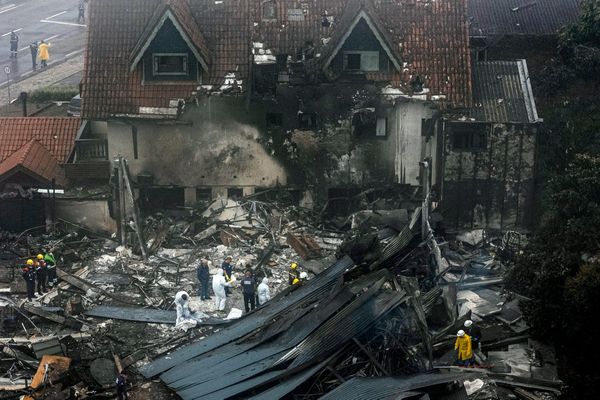
Vienna (AFP) - Saudi Arabia, Russia and other top oil producers agreed on a major cut in production on Wednesday to boost crude prices -- a move denounced by the United States as a concession to Moscow that will further hurt the global economy.
The 13-nation OPEC cartel headed by Riyadh and its 10 allies led by Moscow agreed to reduce output by two million barrels per day from November at a meeting in Vienna, the group said in a statement.
It is the biggest cut since the height of the Covid pandemic in 2020, raising fears that it will turbocharge oil prices at a time when countries are already facing soaring energy-fuelled inflation.
Saudi Arabia's energy minister, Prince Abdulaziz bin Salman, defended the move, saying the cartel's priority was "to maintain a sustainable oil market", at a press conference following OPEC+'s first in-person meeting since March 2020.
But the decision drew a swift rebuke from US President Joe Biden, who had made a controversial trip to Saudi Arabia in July under pressure as Americans faced rising prices at fuel stations.
The timing is also bad for Biden's political agenda as it comes ahead of US midterm elections next month.
"It's clear that OPEC+ is aligning with Russia with today's announcement," White House Press Secretary Karine Jean-Pierre said aboard Air Force One.
National Security Advisor Jake Sullivan and top economic advisor Brian Deese said in a statement that Biden was "disappointed by the shortsighted decision by OPEC+".
Western allies led by the United States have tried to isolate Russia's economy, which relies heavily on energy exports, in retaliation for the invasion of Ukraine.
Oil prices rise
OPEC+ decided to slash its output as oil prices fell below $90 per barrel in recent months over concerns about the global economy, after soaring to $140 in the wake of Russia's invasion of Ukraine earlier this year.
The international benchmark, Brent North Sea crude, was up at $93.43 following Wednesday's announcement.
The oil production cut could give sanctions-hit Russia a boost ahead of a European Union ban on most of its crude exports later this year and as the Group of Seven wealthy democracies mull a cap on the country's oil prices.
Russian deputy prime minister Alexander Novak, who is under US sanctions and attended the OPEC+ meeting, said a price cap would have a "detrimental effect" on the global oil sector.
He warned that Russian companies would "not supply oil to those countries" that introduce such a cap.
"There is a reason why Russia is ready to participate with an OPEC cut -- because they are not sure whether they will find somebody to buy this oil," Patrick Pouyanne, chairman of French oil giant TotalEnergies, said at a London oil industry conference.
Collectively known as OPEC+, the alliance drastically slashed output by almost 10 million barrels per day (bpd) in April 2020 to reverse a massive drop in crude prices caused by Covid lockdowns.
OPEC+ began to raise production last year after the market improved.Output returned to pre-pandemic levels this year, but only on paper as some members have struggled to meet their quotas.
The group agreed last month on a small, symbolic cut of 100,000 bpd from October, the first in more than a year.
Consumer countries had pushed for months for OPEC+ to open taps more widely to bring down prices, but the group ignored them again.
Biden travelled to Saudi Arabia in July in part to convince the kingdom to loosen the production taps.The trip saw Biden meet Crown Prince Mohammed bin Salman despite his promise to make Riyadh a "pariah" following the 2018 killing of journalist Jamal Khashoggi.
While the cut was not welcomed by the United States, several OPEC+ nations have struggled to meet their quotas in the first place.
The next ministerial OPEC meeting will be on December 4. In recent months, the cartel and its partners met online each month.
burs-jza/







